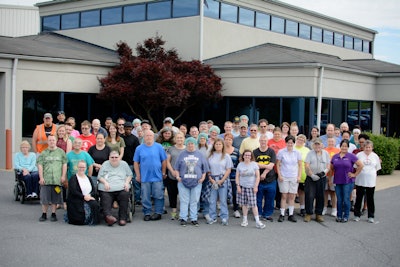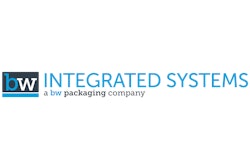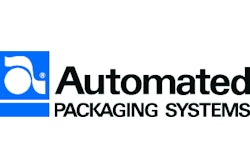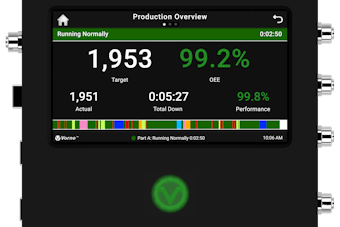Friendship Industries, Inc. is a successful, $7 million contract packaging company in Harrisonburg, VA, that provides quick-turnaround, high-quality secondary packaging services with extreme efficiency. But despite Friendship’s high-caliber output, packaging is primarily a means to an end for this company. Friendship’s main reason for being, since it was founded 55 years ago, has been to provide job opportunities and work skills development training for persons with disabilities, and more recently, for those facing barriers to workplace readiness.
The history of Friendship Industries dates back to 1964, when a group of eight young men with developmental disabilities aged out of their local high school in nearby Linville, VA, and found there were no jobs available for them. Recognizing the power of work to provide individuals with purpose and dignity, the young men’s parents joined together to form a company that could provide them with real-world work experience.
“Friendship Industries was created as a social enterprise, before such a thing existed,” explains Sandra Quigg, Director of Organizational Sustainability for the company. “It was started as a business to employ this specific demographic.”
For roughly 25 years, the company operated much like a job shop, with its first business coming from a nearby Coca-Cola plant and consisting of repairing the wooden crates used to hold its soda bottles. In the early ‘90s however, Friendship decided to focus on its core strength: contract packaging. That’s when the business really took off.
Today, Friendship, along with its non-profit affiliate, Able Solutions, employs 154 workers in an integrated environment in a 74,000-sq-ft production plant. It also offers contract packaging services for refrigerated products through a partnership with InterChange Group, a nearby warehousing and logistics firm with a 64,000-sq-ft cold storage facility.
Balancing mission with margin
Despite its non-profit status, Friendship, like any contract packaging business, wants to make money. But, the goal, as President Dennis Monday explains, is to be as self-sufficient as possible and to employ as many people as possible. Ninety percent of the company’s revenue comes from its commercial operations; 9% from fees-for-service, where local organizations such as the Virginia Department of Aging and Rehabilitative Services (DARS) and the Community Services Boards (CSBs) pay fees to provide extra support for individuals; and 1% from donations.
Friendship’s move to contract packaging, Quigg explains, came after the company “stumbled into assembly work—the non-mechanized portion of projects.” Realizing the need for a more consistent revenue stream and customer base, Friendship Industries hired Tom Hook, an executive from the commercial business world, to move its contract packaging services forward. And he did, expanding the company’s revenue from $360,000 in 1992 to its current $7 million.
Says Piete Casius, Director of Continuous Improvement for Friendship, “Tom was the person who nurtured that baby, so to speak, and developed it into what is probably 80-plus percent of our revenue stream now.”
Friendship Industries specializes in “the adaptability of things that can’t be automated very well,” with a focus on secondary packaging, says Monday. This includes repacking for club and multipacks, shrink wrapping, Retail Ready Packaging, and kit assembly, as well as other services. Among its certifications, the company is FDA-registered for secondary food and medical device packaging. One of its most notable projects is its co-development and component manufacturing and assembly of mission-critical U.S. Air Force Escape and Evasion kits—a job that requires the utmost in quality and accuracy.
Another is its long-term contract with Danone N.A. In 2009, Friendship Industries landed the business, which entails repacking bulk packs of single-serve dairy creamers into smaller packages for distribution to wholesale clubs along the East Coast. Having the manpower, but lacking the refrigerated environment and logistics capabilities, Friendship Industries partnered with InterChange Group's Harrisonburg operations. The collaboration between the two has opened the door to additional opportunities for both.
While much of Friendship’s jobs are done manually, Casius explains that the creamer business is among those few that incorporate automated equipment, due to its scale and the long-term commitment from the customer. What makes Friendship Industries unique versus conventional packaging operations, he says, is that it doesn’t automate to displace workers. “We automate to either generate more revenue or to serve more people.
“Typically we look at automation that can be used for multiple customers. When we implement automated equipment, what we’re trying to do is eliminate bottlenecks—where we can use people with their particular skill sets further down the line. For example, we have one customer with an open Purchase Order, and we were not able to maximize and utilize that entire PO because of a front-of-line bottleneck. So a little bit of automation on the front of that line has allowed us to move those folks [employees] into a little bit more fulfilling, higher-skill positions at the end of the line, while increasing throughput and generating more revenue at the same time.”
At its core, Friendship Industries exists to train those with disabilities and employment barriers and facilitate their upward movement. “What was exciting about automation of the creamer line is that it created a lead position with a much higher reach in terms of skill to be able to operate a modern piece of equipment, which is a skill that could potentially translate to another employer when they move on from us.”
‘A living, breathing paradox’
The leadership team at Friendship Industries is not unaware of the businesses’ contradictory goals: to train employees to be the best at their job, while at the same time training them to leave. “It’s a living, breathing paradox,” says Quigg. But after all, the mission of the enterprise is to nurture employees’ skills, determining what jobs suit them best and training them for upward movement, all while they work in a non-pressure environment.
“We have supervisors who are intimately in tune with the particular needs and abilities of all our employees,” says Casius. “We have employees who, if you measured them conventionally, you might say are only 25-percent productive. For example, if you take an employee with autism and put them on a creamer line, they can’t stand there and stay focused. But if you put them on a job that requires precise placement of labels, they will be at a productivity level that will outpace the average person on the street.”
Friendship Industries constantly challenges its employees, with job coaches and line supervisors training them to work at different stations and on different tasks, resulting in what Quigg refers to as “intentional growth.” Because the jobs coming in the door at Friendship Industries are constantly changing, this cross-training allows the company to be nimbler and more flexible to handle packaging jobs its customers cannot do cost-effectively.
Another important aspect of the business is the integration of employees with disabilities with those without disabilities. In 2012, Friendship Industries formed non-profit Able Solutions as an extension of its mission, hiring people with barriers to employment. These barriers may be anything from a lack of English-speaking skills to attendance issues to recovery from drug and alcohol addiction—as is the case with the young men and woman from a local teen recovery center. Able also hires inmates from a nearby correctional facility as part of the jail’s work-release program.
“If you give us those folks, we can work with them, train them, help them with their hard skills, with their soft skills, and train them to become someone who is employable for the larger industry at hand,” says Casius. “That’s what we’re here to do with all of our employees—to help them grow and develop.”
Through its Personal Improvement Center, Friendship Industries teaches safety training, computer skills, competency training, positive communication, and more through videos, reading, quizzes, and other tools. The center also assists employees in reaching their personal goals by connecting them with local resources, such as language classes, housing services, transportation, or the local food bank. It will also help them look for other jobs and fill out job applications.
Says Monday, “If we train someone to a certain extent, and they are ready to move on in the world and we don’t have the opportunities for them, we reach out to the community and we try to find spots for that upward growth.”
‘Mind-blowing’ abilities
A tour of Friendship’s production plant highlights its range of capabilities. One of its jobs, for online education company K12, involves filling bags with tiles of different shapes and colors, for use by students at home to complement their online lessons. Because the tiles are returned to K12 by the students once they are finished with them, K12 supplies them to Friendship Industries in bulk, with all the shapes and sizes mixed together. So the first step for Friendship Industries is to manually sort the tiles by color and shape. Once sorting is completed, employees fill bags with a specific mix of tiles by first placing the needed pieces on a storyboard, and then bagging them. For example, if an employee is producing bags requiring four round blue tiles, one red rectangular tile, and two yellow star-shaped tiles, their storyboard will include outlines of each piece, upon which they place the tiles to make sure they have the correct number of pieces and the right shapes and colors. Once this is accomplished, they put those tiles in a bag.
In the area where the U.S. Air Force Escape and Evasion kits are assembled, employees follow a storyboard there as well to ensure every component is included in each kit. Once an employee has gathered all the items for a kit, they put the components into a tote that is then weighed. From there, the kit is placed in its primary package—a bag—which is manually massaged by employees, who have become extremely adept at detecting missing items through this method. The final step is manual application of a label by one perfectionist employee who has mastered placement of the label in the same exact location on the pack each and every time.
In the same area, employees bag a single-use, disposable tip for ophthalmologic equipment, producing 10,000 bags/day along with the help of an Auto Bagger from Automated Packaging Systems. Installation of the machine in 2014 increased productivity on the line from 14 bags/min manually to 24/min.
In another part of the plant, employees break down pallets of pharmaceutical-grade bottles in three sizes—1.5, 1, and 4 L—loading them in smaller quantities into cases left unsealed for pharmacy use.
At the InterChange facility, Able Solutions employees create single- and dual-flavor multipacks of single-serve creamers in 24- and 48-ct cartons from master cases of 288 creamers. The facility has three lines, with 16 employees on each line. The operation also does pack-outs in a range of configurations for other dairy products, including bottled creamers.
Automated equipment in use at the refrigerated facility includes a Weigh Right industrial scale, a BW Integrated Systems Thiele CE 422 case erector and hot-melt bottom sealer, a 300E drop case packer from Hamrick Manufacturing & Service, one Shanklin shrink-wrap machine from Sealed Air, and one shrink-wrap machine from Texwrap.
While some of Friendship’s jobs are long-term, others can change daily if not weekly or monthly. The company’s ability to quickly adapt to customers’ needs is a testament to its employee-training strategy of intentional growth.
“When we are going after new business, we tend not to lead with the fact that we employ people with disabilities and those with barriers to workplace readiness, because people have misconceptions about what these demographics can do,” says Monday. “But once they walk through the facility and see what we’re capable of doing, it’s mind blowing. Most people leave here in disbelief of what we do on a daily basis.”
According to Monday, who joined the company in fall of 2018, Friendship Industries and Able Solutions are poised for even greater service in the future. “Finding the right mix of new commercial contract packaging work will allow us to expand our focus on job training and skills development,” he says. “Connecting our citizens to greater opportunities and expanding their career horizons—that is our mission and purpose. And I am excited to be a part of our success moving forward.”





























